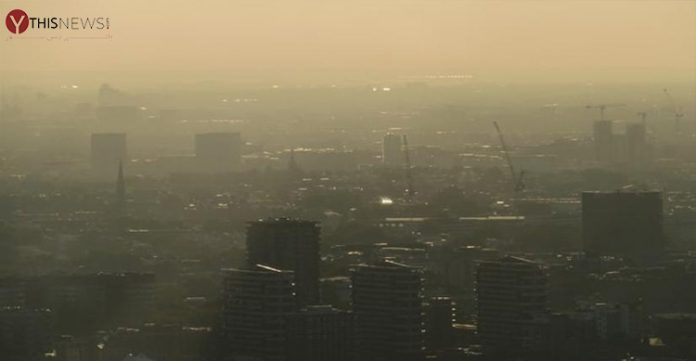As per the latest updates, pollution was liable for 9,000,000 deaths in 2019 – comparable to one out of six deaths around the world – and India leads with almost 2.4 million deaths, as per a review distributed on Wednesday in The Lancet Planetary Health.
Of the almost 2.4 million deaths in 2019, air pollution represented 16.7 lakh deaths – the most elevated by any country. Further, in excess of 5 lakh lives were lost in the country because of water pollution, trailed by word related pollution (more than one lakh) and lead openness (north of 2 lakh).
Internationally, of the 9,000,000 pollution – inferable deaths in 2019, air pollution (both family and encompassing) stays liable for the best number of deaths at 6.67 million around the world.
ALSO READ: Water pollution creates havoc in Hyderabad
Water pollution was liable for 1.36 million unexpected losses. Lead contributed 9,00,000 unexpected losses, trailed by harmful word related dangers at 870,000 deaths.
That’s what the report expresses albeit the quantity of deaths from pollution sources related with outrageous neediness (like indoor air pollution and water pollution) have diminished, these decreases are balanced by expanded deaths owing to modern pollution (like surrounding air pollution and substance pollution).
“The wellbeing effects of pollution stay tremendous, and low-and center pay nations endure the worst part of this weight. Notwithstanding its gigantic wellbeing, social and financial effects, pollution counteraction is generally neglected in the worldwide improvement plan,” said Richard Fuller, from Global Alliance on Health and Pollution, Geneva, Switzerland.
“Forestalling pollution can likewise sluggish environmental change – accomplishing a twofold advantage for planetary wellbeing – and our report requires a huge, fast progress away from all petroleum derivatives to perfect, sustainable power,” added co-creator Professor Philip Landrigan, Director, Global Public Health Program and Global Pollution Observatory at Boston College.
The decrease in deaths from customary pollution starting around 2000 (family air pollution from strong powers and dangerous water) is most apparent in Africa. This can be made sense of by upgrades in water supply and disinfection, anti-microbials and medicines, and cleaner fills.
In any case, this mortality decline has been counterbalanced by a significant expansion in deaths from openness to modern pollution – like surrounding air pollution, lead pollution, and different types of synthetic pollution – across all locales throughout recent years. This is especially clear in Southeast Asia, where rising degrees of modern pollution are joined with maturing populaces and expanding quantities of individuals uncovered.
Surrounding air pollution was liable for 4.5 million deaths in 2019, up from 4.2 million deaths in 2015 and 2.9 million of every 2000. deaths from risky compound pollutions expanded from 0.9 million out of 2000, to 1.7 million out of 2015, to 1.8 million out of 2019, with 900,000 deaths owing to lead pollution in 2019.
Generally, deaths from current pollution have expanded by 66% in the beyond twenty years, from an expected 3.8 million deaths in 2000 to 6.3 million deaths in 2019. Figures on deaths from compound toxins are probably going to be undervalued as just few produced synthetics in business have been enough tried for security or harmfulness, the report noted.
Abundance deaths because of pollution have additionally prompted monetary misfortunes adding up to $4.6 trillion out of 2019, comparing to 6.2 percent of worldwide financial result. The concentrate additionally takes note of pollution’s profound imbalance, with 92% of pollution related deaths, and the best weight of pollution’s monetary misfortunes, happening in low-pay and center pay nations.
The concentrate likewise gave proposals like the requirement for a free, Intergovernmental Panel on Climate Change (IPPC)- style science/strategy board on pollution, close by expanded subsidizing, and further developed pollution observing and information assortment.
(This story has been sourced from a third-party syndicated feed, agencies. Raavi Media accepts no responsibility or liability for the text’s dependability, trustworthiness, reliability, and data. Raavi Media management/ythisnews.com reserves the sole right to alter, delete or remove (without notice) the content at its absolute discretion for any reason whatsoever.)







